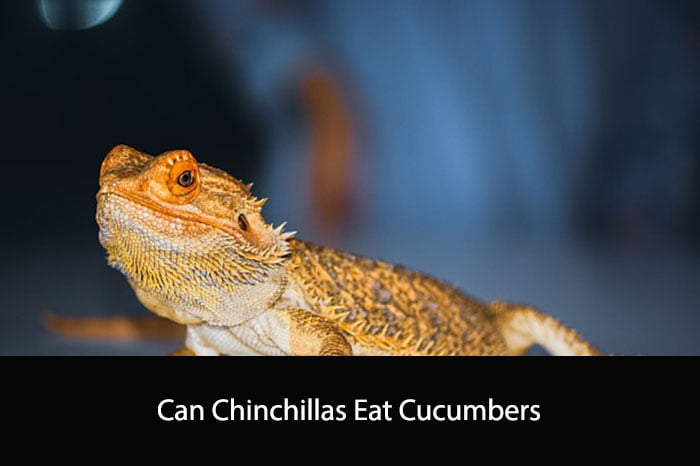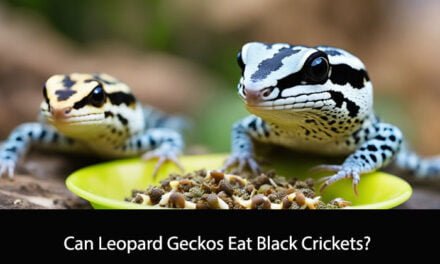Chinchillas are adorable and fluffy pets that require specific dietary needs to maintain their health. As responsible pet owners, we always want to make sure that we are feeding our pets the right food. One question that often arises is whether chinchillas can eat cucumbers.
Cucumbers are a popular vegetable that many of us enjoy in salads or as a refreshing snack. However, when it comes to chinchillas, we need to be careful with what we feed them. While cucumbers are not toxic to chinchillas, they are not the best choice for their diet. In this article, we will explore whether chinchillas can eat cucumbers and what the potential risks and benefits are.
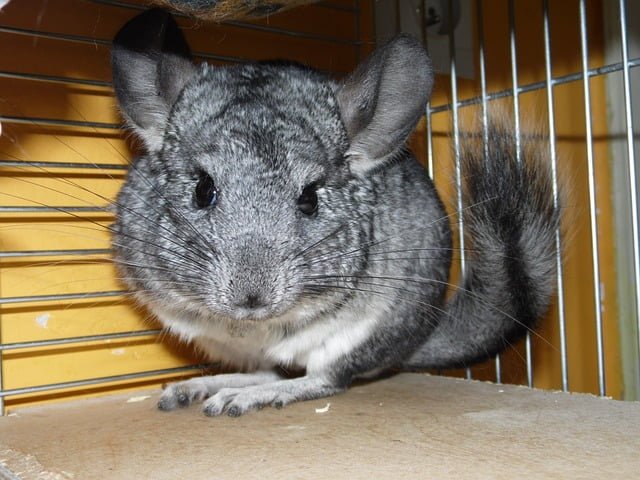
Understanding Chinchillas’ Diet
When it comes to feeding chinchillas, it is essential to understand their dietary requirements to ensure they remain healthy and happy. Chinchillas are herbivores, which means they primarily eat plants, and their diet should consist of high fiber, low-fat, and low-sugar foods.
The main component of a chinchilla’s diet is hay, which should make up the majority of their daily food intake. Good quality hay, such as Timothy hay, provides essential fiber that helps keep their digestive system healthy. We recommend providing fresh hay to your chinchilla every day and ensuring that it is clean and free from dust.
In addition to hay, chinchillas require a small amount of pellets to provide them with essential vitamins and minerals. However, it is important to ensure that the pellets are low in fat and sugar. We recommend feeding your chinchilla a small amount of pellets each day, and ensuring that they have access to fresh water at all times.
While chinchillas can eat some fruits and vegetables, it is important to be cautious about what you feed them. Some fruits and vegetables, such as cucumbers, can be given to your chinchilla in moderation. However, it is essential to avoid feeding them any foods that are high in sugar, as this can cause digestive problems and other health issues.
Overall, a chinchilla’s diet should consist of hay, pellets, and a small amount of fruits and vegetables. By providing your chinchilla with a balanced diet, you can help ensure that they remain healthy and happy for years to come.
Can Chinchillas Eat Cucumbers?
Cucumbers are a refreshing and hydrating snack for humans, but can chinchillas eat cucumbers? In this section, we will explore the nutritional value of cucumbers and potential risks associated with feeding them to chinchillas.
Nutritional Value of Cucumbers
Cucumbers are low in calories and high in water content, making them a great snack for those looking to maintain a healthy weight and stay hydrated. They also contain small amounts of vitamins and minerals, including vitamin C, vitamin K, and potassium.
However, chinchillas have specific dietary needs that differ from humans. Their diet should consist mainly of hay, pellets, and limited amounts of fresh vegetables and fruits. While cucumbers are not toxic to chinchillas, they do not provide significant nutritional value and should only be given as an occasional treat.
Potential Risks
Feeding chinchillas too many cucumbers can lead to digestive problems, including diarrhea and bloating. This is because cucumbers contain a high amount of water and fiber, which can be difficult for chinchillas to digest in large quantities.
In addition, cucumbers may contain pesticides or other chemicals that can be harmful to chinchillas. It is important to thoroughly wash and peel cucumbers before feeding them to your chinchilla to reduce the risk of exposure to harmful substances.
In conclusion, while cucumbers are not toxic to chinchillas, they should only be given in small amounts as an occasional treat. It is important to prioritize a chinchilla’s specific dietary needs and avoid feeding them foods that may cause digestive problems or expose them to harmful chemicals.
Safe Vegetables for Chinchillas
As herbivores, chinchillas require a diet that is high in fiber and low in fat. A balanced diet for chinchillas should include hay, pellets, and fresh vegetables. While chinchillas can eat a variety of vegetables, not all of them are safe for them to consume. In this section, we will discuss safe vegetables for chinchillas.
One of the safest vegetables for chinchillas is lettuce. Chinchillas can eat different types of lettuce, such as romaine, green leaf, and red leaf lettuce. However, iceberg lettuce should be avoided as it has a low nutritional value and can cause diarrhea.
Another safe vegetable for chinchillas is kale. Kale is a good source of vitamins and minerals, such as vitamin C and calcium. However, kale should be given in moderation as it is high in calcium and can lead to bladder stones if given in excess.
Chinchillas can also eat celery, which is a good source of fiber. However, celery should be given in small amounts as it has a high water content and can cause diarrhea if given in excess.
Other safe vegetables for chinchillas include:
- Carrots
- Broccoli
- Bell peppers
- Cilantro
- Parsley
- Dandelion greens
It is important to introduce new vegetables gradually and in small amounts to prevent digestive issues. Chinchillas should also have access to fresh water at all times.
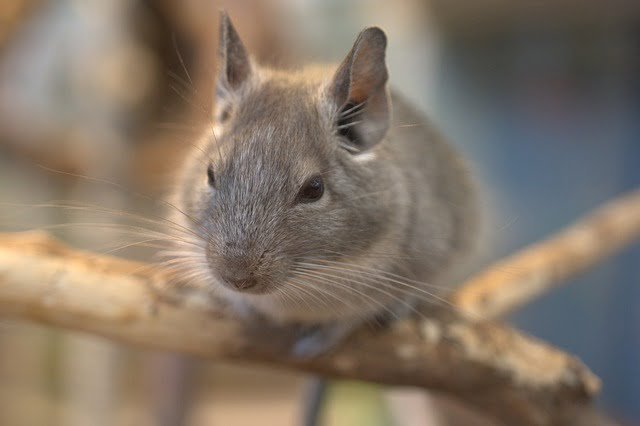
Unsafe Foods for Chinchillas
When it comes to feeding your chinchilla, it’s important to remember that not all foods are safe for them to eat. Some foods can be harmful or even fatal to your furry friend. Here are some of the unsafe foods for chinchillas that you should avoid:
Fruits and Vegetables
While fruits and vegetables are generally considered healthy for humans, they can be harmful to chinchillas. Chinchillas have sensitive digestive systems that are not designed to handle the high sugar and water content found in many fruits and vegetables. Some of the fruits and vegetables that are unsafe for chinchillas to eat include:
- Avocado
- Grapes
- Rhubarb
- Tomato
- Onion
- Garlic
Nuts and Seeds
Nuts and seeds are a common snack for humans, but they can be dangerous for chinchillas. Many nuts and seeds are high in fat, which can cause digestive problems for chinchillas. In addition, some nuts and seeds contain toxins that can be harmful to your furry friend. Here are some of the nuts and seeds that are unsafe for chinchillas to eat:
- Almonds
- Cashews
- Chestnuts
- Macadamia nuts
- Walnuts
- Sunflower seeds
- Pumpkin seeds
Other Unsafe Foods
In addition to fruits, vegetables, nuts, and seeds, there are other foods that are unsafe for chinchillas to eat. These include:
- Chocolate
- Dairy products
- Processed foods
- Sugary foods
- Salty foods
It’s important to remember that chinchillas have very specific dietary needs, and feeding them the wrong foods can have serious consequences. Always consult with a veterinarian or a knowledgeable chinchilla owner before introducing new foods into your chinchilla’s diet.
Feeding Guidelines for Chinchillas
When it comes to feeding chinchillas, it’s important to provide them with a balanced and nutritious diet. While chinchillas can eat a variety of fruits and vegetables, it’s important to be mindful of what you’re feeding them to ensure they stay healthy.
First and foremost, chinchillas should have access to fresh, clean water at all times. This can be provided through a water bottle or a dish, but it’s important to clean and refill it daily.
In terms of food, chinchillas should primarily be fed hay. Timothy hay is a great option, but other types of grass hay can also be used. Hay provides the necessary fiber for chinchillas’ digestive systems and helps keep their teeth healthy.
In addition to hay, chinchillas can also be fed a small amount of pellets each day. Look for high-quality pellets that are specifically formulated for chinchillas. Avoid pellets that contain nuts, seeds, or dried fruit, as these can be high in fat and sugar.
When it comes to fruits and vegetables, chinchillas can eat a small amount as a treat. Cucumbers are a safe option, but should be given in moderation. Other safe options include carrots, apples, and leafy greens like kale and spinach.
Overall, it’s important to provide chinchillas with a balanced and varied diet to ensure they stay healthy and happy. By following these feeding guidelines, you can help ensure your chinchilla gets the nutrition they need to thrive.
Conclusion
In conclusion, chinchillas can eat cucumbers but only in moderation. Cucumbers are a good source of hydration and vitamins for chinchillas, but they should not be fed in large quantities as they contain high amounts of water and low amounts of fiber.
It is important to remember that chinchillas have sensitive digestive systems, and sudden changes in their diet can cause digestive issues. Therefore, it is recommended to introduce cucumbers to your chinchilla’s diet gradually and in small amounts.
Additionally, it is important to choose fresh, organic cucumbers and to wash them thoroughly before feeding them to your chinchilla. Avoid feeding your chinchilla cucumbers that are moldy or spoiled, as this can cause digestive issues.
Overall, cucumbers can be a healthy addition to your chinchilla’s diet if fed in moderation and with caution. As always, it is important to consult with a veterinarian or a chinchilla expert before making any significant changes to your chinchilla’s diet.
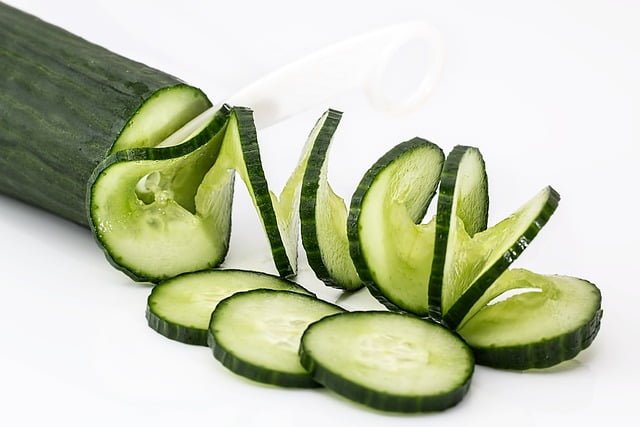
Frequently Asked Questions
What vegetables can chinchillas eat besides cucumbers?
Chinchillas can eat a variety of vegetables, but it’s important to remember that their primary diet should consist of hay and pellets. Some safe vegetables for chinchillas include carrots, kale, spinach, and celery. It’s important to introduce new vegetables slowly and in small amounts to avoid digestive issues.
Are grapes safe for chinchillas to eat?
Grapes are not recommended for chinchillas to eat. They are high in sugar and can cause digestive problems. It’s best to stick to vegetables and hay for their diet.
Is squash a recommended vegetable for chinchillas?
Squash can be a safe vegetable for chinchillas to eat, but it should be given in moderation. It’s important to introduce new foods slowly to avoid digestive issues.
Can chinchillas safely consume bell peppers?
Bell peppers are safe for chinchillas to eat, but they should be given in moderation. They are high in vitamin C, which can be beneficial for chinchillas, but too much can cause digestive problems.
Should broccoli be included in a chinchilla’s diet?
Broccoli can be included in a chinchilla’s diet, but it should be given in small amounts and infrequently. Too much can cause digestive problems.
Are apples, blueberries, and strawberries safe for chinchillas to eat?
Apples, blueberries, and strawberries can be safe for chinchillas to eat, but they should be given in moderation. They are high in sugar and can cause digestive problems if given in excess. It’s best to stick to vegetables and hay for their primary diet.

